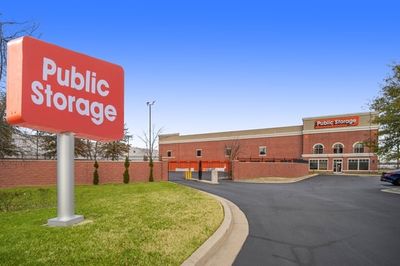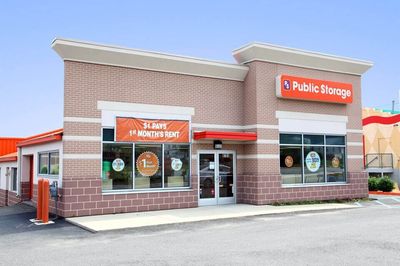Storage Types in Capitol Heights
- Boat Storage Units in Capitol Heights, MD
- Businesss Storage Units in Capitol Heights, MD
- Vehicle Storage Units in Capitol Heights, MD
- Climate Controlled Storage Units in Capitol Heights, MD
- RV Storage Units in Capitol Heights, MD
Other Storage Unit Options in Capitol Heights, MD
Storage Unit Sizes in Capitol Heights
- 5x5 Storage Units in Capitol Heights, MD
- 5x10 Storage Units in Capitol Heights, MD
- 5x15 Storage Units in Capitol Heights, MD
- 10x10 Storage Units in Capitol Heights, MD
- 10x15 Storage Units in Capitol Heights, MD
- 10x20 Storage Units in Capitol Heights, MD
- 10x25 Storage Units in Capitol Heights, MD
- 10x30 Storage Units in Capitol Heights, MD
About Capitol Heights
Capitol Heights is a small town in Prince George's County, Maryland. Most of the town is zoned for residential use, and its convenient location (less than 10 miles from Washington, D.C.) has made it a very popular commuter suburb. Here, you can enjoy an affordable cost of living within easy reach of metropolitan amenities.
Living in Capitol Heights
Capitol Heights is a very small community, and because it's mostly made up of residential communities, commercial districts are limited. However, you'll still be able to access the amenities you need, especially because there are several big cities within easy driving distance. Capitol Heights also offers recreational opportunities to locals, ranging from senior citizens' activities to youth sports.
A large percentage of the local population commutes to other cities, like Baltimore, Annapolis and Washington, D.C., for work. Public transportation is widely used, minimizing some of the hassle of getting in and out of the area.
The History of Capitol Heights
As Washington, D.C., was growing rapidly in the early 1900s, the lack of housing and crowded conditions led many people to look for homes on the outskirts of the area. The newly-developed public transit network made it easy to travel into the city, and many locals were in search of a quiet lifestyle that D.C. simply couldn't offer. Otway B. Zantzinger, a Baltimore local, recognized the situation as a massive business opportunity. He purchased 400 acres to the east of D.C. and divided the land into 4,000 lots. Prices for the lots ranged from $20 to $150, and many people purchased two or more.
In his advertising, Zantzinger had made many promises: drinking water supplied by local springs, views of Washington, D.C., affordable loans and a proposed electric railway that would connect the community with the big city. Residents of Zantzinger's new community had to walk to the nearest transit station in order to access D.C., waiting hopefully for the proposed railway. However, the railway wouldn't come to be for many decades, and that – combined with the lack of public services, paved roads, sidewalks and streetlights – caused discontent among the locals. In 1910, the community voted to incorporate as Capitol Heights, enabling them to establish a basic infrastructure.
The next 50 years saw significant growth and development in the town, and the electric railway that had been promised so long ago was finally built in 1980.
Capitol Heights Schools
Public school students in Capitol Heights attend the school in the Prince George's County Public Schools district. Because of the city's small size, private school options within its limits are fairly limited. However, there are plenty of campuses to choose from in neighboring communities.
Resources for Moving to Capitol Heights
As you plan your move to Capitol Heights, the following resources will be helpful:
- Utilities: The city's major utilities providers are Pepco Electricity and Washington Suburban Sanitary Commission.
- Garbage and Recycling: Trash is collected Mondays and Thursdays, while recyclables are picked up just once per week. You can schedule bulky item collection on an as-needed basis.
- Transportation: The Washington Metropolitan Area Transit Authority serves Capitol Heights and the greater metro area.
Capitol Heights Housing
Housing in Capitol Heights is extremely affordable compared to the surrounding areas, which is part of why homeowners significantly outnumber renters. There are a variety of properties on the market, ranging from single-family detached homes to cozy duplexes.




